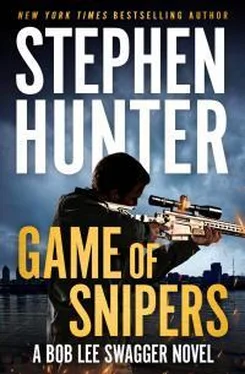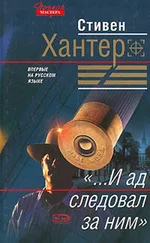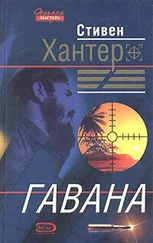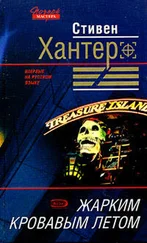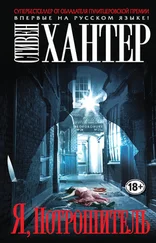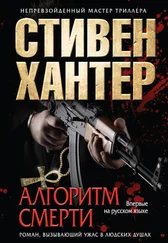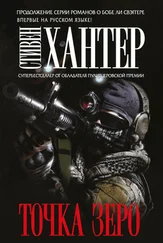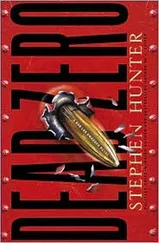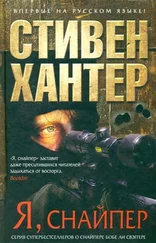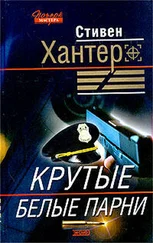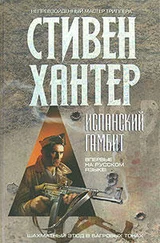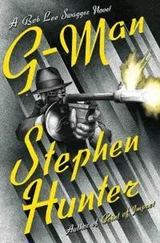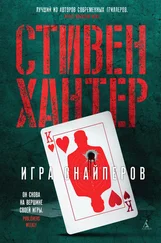Up front, wedged into the hatch next to the inert but watchful Motter, Bob was pleased to note that the Israeli pilots wore FLIR goggles, so, to their eyes, the darkness ahead was illuminated. A good way to avoid telephone poles and other nasty possibilities. Didn’t have them in ’Nam, and too many good men went down in pointless wastage. The birds vectored north by northwest on a heading the pilots knew by memory, just as they knew the landforms and city features that marked the route until they passed from Israel into southern Syria, where it all went dark. The machine vibrated familiarly — it was, after all, a Sikorsky Black Hawk, a kind of Vietnam-era Huey on protein shakes — and Swagger knew, from a thousand flights in three tours, the whup-whup-whup of the rotor, the buzz of the engines, the octane scent of the fuel. But inside — bigger than the Huey but still the cabin of a combat chopper — it was dark except for the glow of somebody oxygenating the burning stub of his butt.
Time elongated, but, at the same time, it contracted. Maybe it just couldn’t figure out what to do and decided to go away.
Red light blinked.
Motter — Gadi, by first name — spoke with the pilots into his throat mic in Hebrew, pulled his legs in, unstrapped himself. In the darkness of the craft, Bob sensed the boys doing the same: butts out, minds blank, throats cleared, goggles down, bolts checked, straps tested, tightness of Kevlar and mushroom observed, knives and grenades and flares at the ready, Glocks and aid kits prepped, relationship to God figured out. Bob duplicated their motions and found himself crouched in the doorway of an assault chopper about to land someplace interesting. He had no fear.
The plan was easy enough, so simple as to almost be no plan at all. The birds down a hundred yards out at three points of the compass, the thirteen guys out, cocked, hot and fast, headed straight in. Classic L. Two elements hit frontally, from slightly different angles; a third sets up horizontal at the house’s rear, to take down any escapees. If they run, they have to be shot; if their hands go up, they’re gestured to their knees and flex-cuffed, and the op moves on. All three elements converge in one minute, each under a shield of fire from the other two. Gadi’s team would hit the door first, and Gadi would enter, followed by others, for house clearance. Swagger was not invited. His job was to wait at the door until all the rooms were cleared and then move in with a second team while a third team formed a perimeter facing the road to Iria, seven klicks away, its militia being the only Syrian force in the area. Job done, Juba either captured or dumped, the guys would take their prisoners back to the choppers and home to Tel Aviv for beer and cheeseburgers by dawn’s early light.
Simple, but what had not been counted on was that whatever bad guy was on sentry was not asleep and certainly not overwhelmed by the arrival of 13. It was as if he knew it could happen at any moment. So before the birds touched down, fire lashed from the house, traced stitches of dust across the zone, threw the odd tracer blur through the air, and whanged off the fuselage. Instead of a quick walk to the target, it was advance by fire and movement at the quickstep.
Swagger stayed close to Gadi, who pushed ahead. In keeping with doctrine, he kept his chamber virginal so that he wouldn’t stumble and kill three Israelis by clenching the trigger by instinct. Meanwhile, fire rose from three points on the upper floor of the house, but the shooters had no targets and could only enfilade the area. Their flashes documented them, however, and steadily any 13 guy who had a shot took it.
War is hell, it is true, but to Swagger, his soul be damned or exalted, it was also cool. The exhilaration of rounds overhead and nearby, peeling through the air and leaving a vacuum where they passed. Heat, light, noise, grit, dirt, adrenaline, energy long forgotten blossoming like an instantaneous orchid. Swagger raced into the melee, looking for someone to shoot. Hoochie Mama, ain’t the beer cold!
Gadi went down. Swagger was on him.
“Fuck,” the Israeli said. “Leg.”
Swagger looked, saw, as usual, that God favors the bold, and that the wound was a through-and-through in the left calf. Not much blood, no spurt or gush. Just an ugly pucker in and an ugly pucker out.
“You’ll be okay.”
“Tell them to keep moving. They can’t get hung up here.”
“What do I say … what’s the phrase?”
“Well, it’s—”
Two other men came and hovered, the three talking in Hebrew. One, a sergeant, stood and waved the boys forward. With no Gadi to be his sponsor, Swagger felt himself freed from obligation, and he moved fast as any of them on the house, heard a cry, which he knew had to be “Grenade out,” went flat as three large concussions ripped up dirt and debris and filled the air with dangerous stuff, but he was up. The fire volume rose, and everywhere in the brush fast smacks of dust displayed the random pecks of bullets as the defenders fired blindly at men they couldn’t see. He made it to the door and realized — Hello! Ding-dong! Eureka!—it’s time to go hot. He slid back the Uzi bolt, felt it lock, and he shoved the handle, at that point disengaged, forward. His thumb made certain the lever was pushed to full auto, and, last of all, he yanked on the folding stock, getting it to telescope out, and though it was no ergonomic masterpiece, it gave him something to lock between arm and rib cage. That done, he did an appraisal of the house. He was alone. He reached for a grenade, realized he had no grenades. He made ready to enter under his own full-auto cover, but then, out of the night, two more commandos showed. One had a frag in hand, nodded at Swagger, who nodded in reply and pulled back. The man tossed it. In an instant, it transformed into pure energy — lots of it.
He waited a second for pieces of stuff to cease whirling about what used to be a room, was the first to enter the boiling atmosphere, and when a figure emerged from another doorway across the space, he put six Uzi nines into him fast, melting him to the ground at light’s speed, feeling the jerk of mechanism, peripheral vision noting the spew of spent cases and smear of flash at the muzzle. Behind him, he heard men climbing steps to deal with upper-floor resistance, but his job was to push through to any sort of shop.
He rushed ahead, found nobody else to shoot, came to a door, kicked it open to behold a shooter’s headquarters: targets on wall, components on shelves, heavy reloading bench, arbor press. A smashed laptop lay atop the bench, its screen a look-alike for Bonnie and Clyde’s windshield. A man crouched at the bench, struggling with a lighter while holding an opened eight-pound plastic jug whose label proclaimed Hodgdon H1000, a smokeless powder applicable to reloading cartridges. It was highly volatile.
Bob thrust the Uzi muzzle at him, finger on trigger, but did not pull down.
“No!” he screamed. “No!”
Another commando was at his shoulder, rifle zeroed, also screaming, but more helpfully in Arabic.
The lighter lit. The fighter laughed, showing white teeth.
“Allahu Ak—!” he screamed and dropped it into the jug. If he expected a blast, he did not get it, for smokeless burns incredibly fast but does not explode. What he got, rather, was an instantaneous transformation of the universe, of which the central feature became the Devil’s blowtorch, which His Satanic Majesty had just ignited. All the mythic furies of lethal flame proclaimed the presence of that which melts everything in a fraction of a sliver of a fragment of an instant. The man himself was wardrobed in flame. The fire simply cloaked him alive, engulfing him to the atomic level, as all eight pounds of H1000 went. He was not a man on fire but a man of fire. Yet still, in the heart of the heart of the burning, he had some rational impulse left and spun backwards, where, in a corner, a collection of similar powder jugs had been stashed.
Читать дальше
